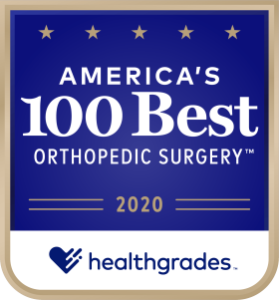Knee replacement—whether partial or total—is a major step toward regaining mobility and reducing chronic pain. However, successful recovery involves both preparation and post-op care. Here’s a detailed roadmap to guide you through each phase.
-
Pre‑Surgery Preparation
- Health optimization: Working on weight loss, quitting smoking, and managing chronic conditions like diabetes or hypertension can significantly reduce surgical risks (hackensackmeridianhealth.org, hackensackmeridianhealth.org).
- Pre‑habilitation: Engaging in physical therapy before your surgery strengthens muscles and improves post-surgery mobility (hackensackmeridianhealth.org).
- Setting expectations: Understand that while walking typically starts the same day of surgery, full recovery takes months—patience matters (hackensackmeridianhealth.org).
-
Immediate Post‑Op (Day 1–Week 1)
- Early mobilization: Most patients stand and walk with assistance within 24 hours, using a walker or similar aid (healthline.com).
- Pain and swelling control: Use prescribed pain meds, ice therapy, and elevation—pain meds are best taken with food and before therapy sessions (hackensackmeridianhealth.org).
- Home setup: Plan ahead—ensure you have assistance, easy access to medical/support equipment, and a comfortable space for recovery at home (hackensackmeridianhealth.org).
-
Weeks 2–6: Regaining Mobility
Physical therapy routine: Engage in guided exercises to restore range of motion, build strength, and walk with a cane or without aid by weeks 2–3 (healthline.com).
- Return to daily activities:
- Sitting, light chores, and short walks by week 3.
- Desk jobs and driving often resume between weeks 4–6, once off narcotics and cleared by your surgeon (hackensackmeridianhealth.org, healthline.com).
- Maintain therapy habits: Adhere to PT guidance and avoid pushing too hard—progress should be steady, not forced (healthline.com).
-
Months 3–6: Regaining Independence
- Significant improvements: By 3 months, most patients report ~60% better mobility; at 6 months, around 80% improvement .
- Stick with therapy: Continued strength and flexibility work helps achieve full knee function, with recurring assessments as needed (hackensackmeridianhealth.org).
-
Long‑Term Recovery (Beyond 6 Months)
- Full recovery: It may take up to 12 months for the knee to feel completely natural again .
- Lifestyle adjustments: Most activities resume safely—but avoid high-impact sports like skiing or basketball unless cleared by a doctor (ynhhs.org).
- Ongoing follow-up: Regular check-ups at 2–3 weeks, 6 weeks, 3 months, and 12 months post-op—and then annually—are essential to monitor implant health and identify any complications early (verywellhealth.com).
Why Great Lakes Orthopaedics Approach Stands Out
- Personalized recovery plans: From outpatient or inpatient surgery to tailored physical therapy.
- Expert guidance: Our team supports you—from pre-hab through long-term follow-up—to ensure safe, steady progress.
- Cutting-edge techniques: We utilize minimally invasive and robotic-assisted procedures that often speed recovery and reduce pain.
Quick Tips for Faster Healing
- Start moving early—lying in bed isn’t an option.
- Follow your PT plan—consistency is key.
- Use ice and elevation to reduce swelling.
- Stay mobile and avoid high-impact activities during rehab.
Choosing knee replacement with Great Lakes Orthopaedics means choosing a future with more movement and less pain—let us guide you every step of the way.
Need help planning your path forward? Contact us today to schedule a consultation or learn more about our recovery programs.
The content on this website is for informational purposes only and is not a substitute for professional medical advice, diagnosis, or treatment. Always consult a qualified healthcare provider with any questions about a medical condition. Do not ignore or delay seeking medical help based on content from this site. If you are experiencing a medical emergency, call 911 immediately. Great Lakes Orthopaedics makes no guarantees about the accuracy or completeness of the information and is not responsible for external links or third-party content.



 Physical therapy routine: Engage in guided exercises to restore range of motion, build strength, and walk with a cane or without aid by weeks 2–3 (
Physical therapy routine: Engage in guided exercises to restore range of motion, build strength, and walk with a cane or without aid by weeks 2–3 (

